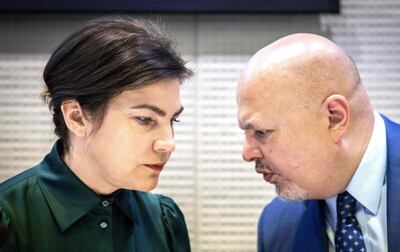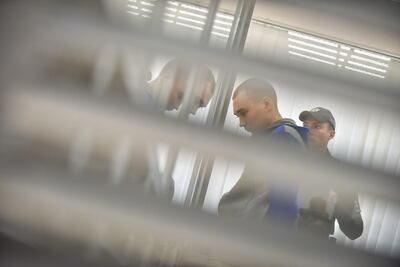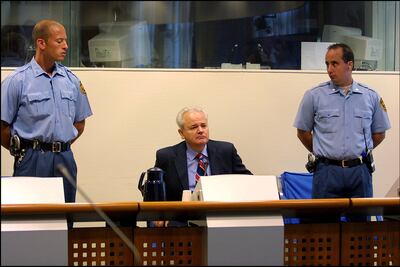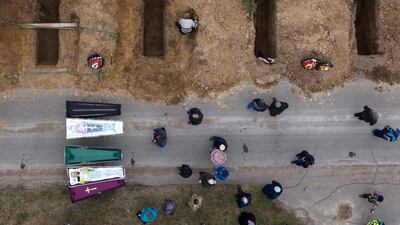War brings out the worst and best in human nature. The worst is, of course, the immense cruelty and suffering that man can inflict upon his fellow man: the torture, destruction of hospitals and schools, ethnic cleansing, deportation and more. But the best of human nature is often seen in how quickly people rally to support and help those in dire need.
The war in Ukraine is one such example.
Within days of the Russian invasion, humanitarian organisations flooded the regions surrounding Ukraine, ready to greet the millions of refugees who fled the fighting. Apart from workers representing NGOs and religious groups, many ordinary civilians paid for their own tickets to arrive at the border towns of Poland and Romania, just to hand out soap, shampoo and warm clothes to those streaming in. Some offered them a bed for the night. Others rushed to Lviv in western Ukraine to set up medical facilities and deliver supplies ranging from flak jackets to surgical equipment.
The world galvanised for Ukraine in a way it hardly did for Syria, Yemen, Afghanistan or Iraq. It is partly, and shamefully, because Europe and Europeans felt more comfortable with people “who looked like them”. I remember the 1994 genocide in Rwanda being all but ignored, at least in the early days of the brutality. Afghan refugees still struggle to get into "Fortress Europe" by waiting at the Bosnian-Croatian border, only to be beaten back again and again by frontier police. But friends of mine in France, Germany and the UK have opened their homes to Ukrainians.
The other reason is that it is a war launched by Moscow, so it conjures up old memories of the Cold War. Europe came together against a common enemy, and for some – be it the Finns or the Germans – it became deeply concerning how geographically close they are to the Russian front.

The place where it is most evident how the world supports Ukraine is the unprecedented response to war crimes. The Ukrainian Prosecutor General, Iryna Venediktova, has said they are beginning to investigate as many as more than 10,000 cases. The first case has already led to a verdict being delivered against 21-year-old Russian army sergeant Vadim Shishimarin, who was sentenced to life in prison for killing a 62-year-old Ukrainian civilian in the northern town of Sumy last week.
“I think that it's good for civility for Russian soldiers, for Russian commanders to understand that if they decided to do such atrocities, to kill, to rape, to loot, to torture, we will find everyone [sooner or later],” she told The Washington Post, “but we will identify all of you. We start to prosecute, and you will be responsible for all your atrocities."
What sets Ukraine apart from other conflicts is the fact that evidence collection is happening while the war is still ongoing. Many conflicts, such as the one in Bosnia, did not begin their tribunals until several years after the war ended in 1995. In the case of Bosnia, the number of prosecutions by the International Criminal Tribunal of the Former Yugoslavia indicted 161 people and convicted 90, including former Serbian president Slobodan Milosevic, who was arrested in 2001.
Given that there was a genocide in which nearly 8,000 men and boys died, and rape camps where an estimated 50,000 women were raped, this is a disappointing figure. Many people questioned the court’s value, seeing it as yet another example of the UN’s ineffectiveness at stopping the horror in the Balkans.
Syria also suffers from justice delayed. Syrian human rights groups have filed more than 20 legal complaints against regime officials. A landmark case in Koblenz, Germany, found a Syrian colonel, Anwar Raslan, guilty of crimes against humanity and sentenced to life in prison. The trial was a landmark – and showed there is no safe haven for war criminals, but still, given the level of atrocities committed in Syria, it’s not nearly enough. Only a handful of war criminals have been prosecuted.


Other wars continue to be ignored, too, such as the ones in Yemen, Ethiopia and Gaza. They illustrate how international justice is often seriously flawed.
We expect more from Ukraine.
Dozens of investigators – including a team I am directing, called The Reckoning Project – are in the field collecting data and evidence, verifying it, and building cases. This is a good thing. The world has eyes on what happened in Bucha, in Irpin, in Sumy and in the occupied territories.
Much has been said lately about the danger of having so many people working in the field. I disagree. It’s the first time in 35 years covering war zones that I have worked in a conflict where the world is actually paying attention to war crimes as they are happening in real time. Of course, the various people involved in collecting and collating data need to ensure that their methodologies are sound. For instance, care must be taken to ensure that victims and witnesses don’t give inconsistent statements – something that can occur when interviewed over and over again by many people. Worse, there is a danger to retraumatise them with multiple interviews.
The British barrister Philippe Sands, who wrote the magisterial book on the intellectual origins of genocide (which he traced to what is now Lviv during the Second World War) recently noted that, with an array of investigations, there are rising tensions regarding overlap and duplication in national and international bodies over jurisdiction. He is correct. There are French investigators with mobile units; Lithuanian investigators, a team of 42 from the ICC. In Poland, a governmental agency, the Pilecki Institute, is working with questionnaires to talk to refugees about what they witnessed. There are numerous civil society organisations, such as ours, working on the ground.
Will all this work bear fruit?
Mr Sands asked a journalist recently: “Will we get to the top table?” He meant, will only low-level soldiers be prosecuted, or will elite-level officials, for instance, in the Kremlin be brought to account? How do we get those truly responsible for this war to the Hague?
For the moment, we have to keep doing the hard work, the field work: gathering summaries that will lead to testimonies.
There are attempts to streamline the process of pulling together evidence; the Ukrainian 5 am Coalition, for instance, was founded to help synthesise data and research from more than half a dozen human rights groups to co-ordinate and share with government officials, including the ICC and the Ukrainian Prosecutor General. My team is trying to work with fellow civil society organisations to follow a strict methodology that uses the protocol of Do No Harm, and to keep our goals in mind: we plan to have 150 testimonies in one year's time. We will build these into cases with the help of human rights and criminal lawyers.
It's slow work, it’s painful work. But we have a clear goal, and step by step, we will get there.


